Are you facing an insurance loss? You are not alone. SPIA is here to help.
Here are some important questions to explore. Please click each link for the answer.
Do you have more questions? We’re ready to help you.
Please contact Lee.
FAQs
Public Adjusters are professionals who have expert knowledge on loss adjustments. They are employed by the general public to assist them in the preparation, presentation and negotiation of insurance claims. In Massachusetts, the Division of Insurance licenses Public Adjusters. Insurance company adjusters are not required to be licensed in Massachusetts.
Insurance company adjusters are employed exclusively by insurance companies, which leads to establishing their loyalties based on this financial agreement. They must attempt to strike a balance between your interest and those of their employer. Public Adjusters work for the client’s best interest only.
How many insurance claims have you adjusted? Do you really know what is rightfully due you? Lee does! With Lee’s experience and technical knowledge, he is far more capable of bringing about a more favorable and equitable settlement.
An agent or broker is trained in determining your insurance needs, but they are not generally trained or experienced in the preparation and resolution of a claim. Additionally, agents my also experience some financial disincentives with larger claim recoveries, as they adversity affect their “loss/earning” ratio.
The typical insurance policy contains many provisions, complex details and technical language about your requirements and the complicated procedures you must adhere to in case of loss. Most people do not know or understand these policy provisions, and do not realize the burden of proof is on them., the policyholder. In fact, many insurance company representatives prefer working with a professional Public Adjuster than an inexperienced insured.
The Public Adjuster takes a physical inventory, obtains all pertinent appraisals and makes sure all the provisions in your policy are properly fulfilled. This often involves numerous steps of which you may know little or nothing about, but can make a significant difference in the amount of the final recover.
When insurance company adjusters first see your loss, they typically make a quick evaluation of the damage, and attempt to establish the maximum amount of exposure that the insurance company will be exposed to. This is referred to as a “Reserve.”
When insurance company adjusters first see “your” loss, they typically make a quick evaluation of the damage, and attempt to establish the maximum amount of exposure that the insurance company will be exposed to. This is referred to as a “Reserve.”
Their next step will be to make a repair estimate. If a public adjuster’s services are engaged at this point, he will likely be faced with a twofold challenge. First, he will have to demonstrate that the company’s adjuster’s reserve was insufficient. Second he will have to show that the adjuster’s scope and unit costs were inadequate.
Human nature, being what it is, will likely result in the company adjuster being extremely defensive (not wanting to disappoint his employer). The likely conclusion is a long, drawn out process.
Most building contractors do not have the experience in interpreting insurance policies and how they apply to a loss. They are not knowledgeable in calculating depreciation, co-insurance, actual cash value provisions of the policy and other elements of your loss.
Contractors should be competitive with their bids, attempting to provide their lowest figure in order to get the job. IN addition, your contractor does not have the expertise or time to prepare a detailed personal property inventory, prepare your additional living expense or business interruption claim.


